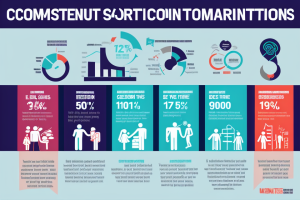Video games have come a long way since their inception, and today they offer players an immersive experience that goes beyond just entertainment. Many games are based on historical events, and the level of accuracy in these games is often debated. This raises the question: is historical accuracy important in video games? In this comprehensive exploration, we will delve into the debate surrounding this topic and examine the arguments for and against historical accuracy in video games. Join us as we explore the world of gaming and history, and discover the impact that accuracy can have on the player’s experience.
The Importance of Historical Accuracy in Video Games
Preserving Historical Events and Cultures
Authentic representation of historical events
The representation of historical events in video games plays a crucial role in preserving the facts and context surrounding these events. This authenticity allows players to better understand the circumstances and implications of historical events, providing a valuable educational tool.
Educational value for players
Video games that incorporate historical accuracy can offer players an engaging and interactive learning experience. By immersing themselves in the historical context of a game, players can gain a deeper understanding of the events, cultures, and societies that have shaped our world. This educational value is particularly important for younger players who may not have been exposed to certain historical events or cultures in their traditional education.
Promoting cultural understanding and empathy
Historical accuracy in video games can also promote cultural understanding and empathy among players. By accurately representing the cultures and societies of different historical periods, players can gain a greater appreciation for the diversity of human experience. This understanding can foster empathy and respect for other cultures, helping to break down barriers and promote global harmony. Additionally, video games that accurately represent historical events can help players develop a critical thinking skills by questioning the perspective and bias of the game developers.
Impact on Player Experience
Immersive and Realistic Gameplay
One of the primary reasons historical accuracy is crucial in video games is that it enhances the player’s immersion in the game world. When the game’s historical elements are accurate, players can more easily suspend their disbelief and become fully engrossed in the game’s setting. This immersion is particularly important in games that rely heavily on historical events or settings, such as strategy games, simulation games, and games that focus on specific historical periods or events.
Enhancing Storytelling and Narrative
Historical accuracy also plays a vital role in enhancing the game’s storytelling and narrative. When a game’s historical elements are accurate, it adds depth and believability to the game’s story. This can make the game’s narrative more engaging and enjoyable for players, as they can better relate to the characters and events portrayed in the game.
Moreover, historical accuracy can help players learn about history in an entertaining and engaging way. Games that accurately portray historical events can provide players with a unique perspective on the past, which can help them better understand and appreciate history.
Building Credibility and Trust in the Game
Another reason historical accuracy is essential in video games is that it builds credibility and trust in the game. When a game is historically accurate, players are more likely to trust the game’s world and its story. This can help players become more invested in the game and its characters, which can lead to a more rewarding and enjoyable gaming experience.
Additionally, historical accuracy can help games stand out in a crowded market. With so many video games available, players are increasingly looking for games that offer unique and engaging experiences. When a game is historically accurate, it can differentiate itself from other games and attract players who are interested in history and historical events.
Overall, the impact of historical accuracy on player experience is significant. Accurate historical elements can enhance immersion, improve storytelling and narrative, and build credibility and trust in the game. As such, it is essential for game developers to prioritize historical accuracy in their games to provide players with the most engaging and enjoyable gaming experience possible.
Balancing Historical Accuracy with Creative Freedom
The Challenge of Adapting History for Entertainment
Adapting history for entertainment purposes is a complex process that poses significant challenges for video game developers. While historical accuracy is essential, creative liberties are also necessary to make the game engaging and entertaining. This section will explore the challenges that developers face when adapting history for entertainment and how they can balance these challenges.
- The need for creative liberties
Creative liberties are necessary to make a video game more engaging and entertaining. While historical accuracy is crucial, it is not the only factor that makes a game enjoyable. Developers need creative liberties to add drama, excitement, and other elements that make a game more fun to play. However, the use of creative liberties can also lead to historical distortion, which can be problematic. - The role of artistic license
Artistic license is a term used to describe the freedom that artists have to deviate from factual accuracy in their work. While it is essential to maintain historical accuracy, artists also need to have the freedom to express themselves creatively. Video game developers use artistic license to create compelling stories and engaging gameplay, but this can also lead to historical distortion. - The potential for historical distortion
Historical distortion is a significant concern when adapting history for entertainment. While creative liberties are necessary, they can also lead to inaccuracies that can mislead players and distort the truth. Developers must be careful to maintain historical accuracy while also creating an engaging and entertaining game. Balancing these two factors is a significant challenge that requires careful consideration and attention to detail.
In conclusion, adapting history for entertainment is a complex process that poses significant challenges for video game developers. While creative liberties are necessary, they can also lead to historical distortion. Developers must be careful to balance these challenges and maintain historical accuracy while also creating an engaging and entertaining game.
Striking a Balance between Accuracy and Entertainment
Video games are designed to entertain, but they also have the potential to educate players about history. However, striking a balance between historical accuracy and creative freedom can be challenging. In this section, we will explore the importance of finding the right balance for different games, evaluate the impact of creative choices on player experience, and encourage responsible game development.
- Finding the right balance for different games
- Every game is different, and therefore, the balance between historical accuracy and creative freedom will vary depending on the game’s genre, target audience, and purpose. For example, a game that is designed to be a historically accurate simulation, such as Civilization, will require a different balance than a game that is designed to be a more creative interpretation of history, such as Assassin’s Creed.
- Developers must consider the game’s intended purpose and audience when deciding how much historical accuracy to include. For instance, a game that is designed for educational purposes will require a higher degree of accuracy than a game that is designed purely for entertainment.
- Evaluating the impact of creative choices on player experience
- Creative choices can significantly impact the player experience in a game. For example, a game that includes anachronistic elements, such as modern technology in a historical setting, may be more entertaining but less accurate.
- Developers must consider the impact of their creative choices on the player experience and decide whether the benefits of creative freedom outweigh the cost of inaccuracy.
- Encouraging responsible game development
- Developers have a responsibility to ensure that their games are both entertaining and accurate. This requires a commitment to research and a willingness to listen to feedback from historians and other experts.
- Developers should also be transparent about their research and the creative choices they make. This can help build trust with players and ensure that the game is both entertaining and educational.
In conclusion, striking a balance between historical accuracy and creative freedom is essential for developing engaging and educational video games. By considering the game’s intended purpose and audience, evaluating the impact of creative choices, and committing to responsible game development, developers can create games that are both entertaining and accurate.
Historical Inaccuracies in Video Games: Examples and Analysis
Common Types of Inaccuracies
When it comes to historical accuracy in video games, there are several common types of inaccuracies that often arise. These inaccuracies can range from minor errors to more significant distortions of historical events and figures. Some of the most common types of inaccuracies include:
- Incorrect portrayal of events: This type of inaccuracy occurs when a video game depicts historical events in a way that is not factually accurate. For example, a game might show a battle taking place in a location where it never actually occurred, or it might show events happening in a different order than they actually did.
- Stereotyping and cultural insensitivity: Another common type of inaccuracy is the stereotyping and cultural insensitivity of certain groups of people. This can include the portrayal of certain cultures or ethnicities in a way that is offensive or inaccurate, or the use of racist or derogatory language in the game.
- Misrepresentation of historical figures: Video games also often misrepresent historical figures, either by portraying them in a way that is not accurate or by completely inventing characters who did not exist in history. This can be particularly problematic when the game is based on a true story or event, as it can lead to a distorted understanding of history.
These are just a few examples of the common types of historical inaccuracies that can be found in video games. While some of these inaccuracies may seem minor, they can add up to a distorted view of history that can be harmful and misleading.
The Impact of Inaccuracies on Player Perception
Inaccuracies in video games can have a significant impact on player perception, damaging the credibility of the game and potentially perpetuating misconceptions and biases. When players encounter historical inaccuracies in a game, it can undermine the educational value of the game and hinder the ability of the game to effectively convey historical events and concepts.
- Damaging the credibility of the game: Inaccuracies can undermine the credibility of a game, particularly when the game is marketed as a historically accurate representation of a particular time period or event. If players discover that the game contains significant inaccuracies, it can erode their trust in the game and potentially lead to a negative perception of the game as a whole.
- Perpetuating misconceptions and biases: Inaccuracies in video games can also perpetuate misconceptions and biases, particularly if the inaccuracies reflect common stereotypes or biases. For example, if a game depicts a particular ethnic group in a negative or stereotypical manner, it can reinforce negative stereotypes and perpetuate harmful biases.
- Undermining the educational value of the game: Finally, inaccuracies can undermine the educational value of a game, particularly if the game is marketed as an educational tool or resource. If players discover that the game contains significant inaccuracies, it can undermine their trust in the game’s ability to provide an accurate representation of historical events and concepts. This can be particularly problematic if the game is used in an educational setting, as it can hinder the ability of the game to effectively teach players about history.
The Ethics of Historical Accuracy in Video Games
The Responsibility of Game Developers
- Adhering to ethical standards
Game developers have a responsibility to ensure that their games accurately represent historical events and figures. This includes avoiding the stereotyping or caricaturization of historical figures, and presenting a balanced and nuanced view of history. Developers should also avoid using historical events for gratuitous or sensationalistic purposes. - Acknowledging the influence of games on society
Game developers should recognize the impact that their games can have on society, particularly in terms of shaping public opinion and cultural norms. As such, they have a responsibility to ensure that their games are historically accurate and do not perpetuate harmful stereotypes or misinformation. - Respecting cultural and historical sensitivities
Game developers should be mindful of the cultural and historical sensitivities of the communities they represent in their games. This includes avoiding the appropriation of cultural symbols or imagery, and ensuring that the representation of historical events and figures is respectful and accurate. Developers should also engage in meaningful consultation with community members to ensure that their games are culturally sensitive and appropriate.
The Role of Players and Critics
As players and critics, we have a responsibility to promote awareness and understanding of historical accuracy in video games. This can be achieved by:
- Encouraging game developers to conduct thorough research and accurately represent historical events and figures in their games.
- Providing constructive feedback to game developers on the accuracy of their games, highlighting areas that require improvement and commending those that get it right.
- Advocating for the inclusion of diverse perspectives and voices in the development of historical games, to ensure a more inclusive and accurate representation of history.
Furthermore, we must hold game developers accountable for their choices regarding historical accuracy. This can be done by:
- Critically examining the accuracy of the historical events and figures portrayed in video games and holding game developers accountable for any inaccuracies or distortions.
- Advocating for transparency in the development process, including the sources used for research and the reasoning behind creative choices.
- Supporting the development of guidelines and standards for historical accuracy in video games, to ensure that developers are held to a high standard.
Finally, we must encourage a culture of responsible gaming, where players and critics are mindful of the impact that video games can have on our understanding of history. This can be achieved by:
- Encouraging players to approach historical games with a critical eye, and to fact-check the information presented in the game.
- Providing educational resources and context for players to deepen their understanding of historical events and figures.
- Advocating for the use of video games as a tool for education and engagement with history, rather than a substitute for traditional historical scholarship.
Future Directions in Historical Accuracy in Video Games
Technological Advancements and Their Impact
As technology continues to advance, video games are becoming increasingly capable of providing historically accurate representations of the past. These enhanced capabilities offer new opportunities for immersive historical experiences, but they also present potential challenges in maintaining authenticity.
One area where technological advancements are making a significant impact is in the realm of visual representation. With the advent of advanced graphics engines and realistic character models, game developers can now create environments and characters that closely resemble their historical counterparts. This level of detail and accuracy is particularly important in games that focus on specific historical events or periods, as players expect a high degree of authenticity in order to fully immerse themselves in the experience.
In addition to visual representation, technological advancements are also enabling more accurate simulations of historical events and processes. For example, some games now incorporate advanced physics engines that allow for realistic depictions of combat, battlefield tactics, and other key aspects of historical warfare. Similarly, some games are now using advanced AI algorithms to simulate the behavior of historical figures and their interactions with players.
However, these technological advancements also present challenges for maintaining historical accuracy. For example, game developers must carefully balance the need for realism with the need for engaging gameplay, as overly realistic simulations may not be as enjoyable for players. Additionally, the use of historical figures and events in video games can raise ethical concerns, particularly when it comes to accurately portraying the beliefs and actions of real people.
Overall, the impact of technological advancements on historical accuracy in video games is significant and multifaceted. While these advancements offer new opportunities for immersive historical experiences, they also present challenges that must be carefully navigated by game developers in order to create accurate and engaging games that resonate with players.
Emerging Trends and Developments
Increasing demand for historically accurate games
As the gaming industry continues to evolve, there is a growing demand for historically accurate games that provide players with a realistic and immersive experience. This trend is driven by players who are looking for games that offer a more educational and engaging experience, rather than just entertainment.
The role of educational games in promoting historical accuracy
Educational games have emerged as a significant trend in the gaming industry, with developers creating games that focus on teaching players about history and promoting historical accuracy. These games are designed to provide players with an engaging and interactive learning experience, using a range of gameplay mechanics to convey historical events and concepts.
The influence of player feedback on game development
Player feedback has become an increasingly important factor in game development, with developers using player feedback to improve the historical accuracy of their games. Players are now more likely to provide feedback on historical inaccuracies, and developers are taking this feedback into account when designing and developing new games.
In addition, developers are also using player feedback to create more realistic and immersive historical settings, ensuring that games are as accurate as possible while still providing an engaging and entertaining experience for players.
Overall, these emerging trends and developments in the gaming industry are leading to a greater focus on historical accuracy in video games, with developers working to create games that provide players with a more realistic and immersive experience while also promoting education and engagement.
Addressing the Challenges and Opportunities Ahead
Overcoming barriers to achieving historical accuracy
One of the primary challenges in achieving historical accuracy in video games is the vast array of variables that must be considered. From the historical events themselves to the social, cultural, and political contexts in which they occurred, developers must carefully research and accurately represent every aspect of the past. Additionally, they must ensure that their representation of historical events does not perpetuate harmful stereotypes or inaccurately represent the experiences of marginalized groups. To overcome these barriers, developers can invest in more thorough research, collaborate with historians and other experts, and prioritize diversity and inclusivity in their game design.
Encouraging responsible game development practices
Another challenge in achieving historical accuracy in video games is the pressure to meet deadlines and stay within budget constraints. This can sometimes lead to developers taking shortcuts or making compromises on accuracy in order to get the game to market. To encourage responsible game development practices, it is important for developers to prioritize historical accuracy from the outset of the project and involve historians and other experts in the development process. Additionally, publishers can incentivize developers to prioritize accuracy by providing more time and resources for research and development.
Exploring new frontiers in historical gaming experiences
Despite the challenges, there are also many opportunities for developers to push the boundaries of historical accuracy in video games. With the rise of virtual reality and other immersive technologies, developers can create more interactive and engaging historical experiences that allow players to explore and interact with the past in new ways. Additionally, developers can experiment with different narrative structures and gameplay mechanics to create more engaging and immersive historical experiences. By exploring these new frontiers, developers can not only enhance the accuracy of their games but also create more engaging and memorable experiences for players.
FAQs
1. What is historical accuracy in video games?
Historical accuracy in video games refers to the extent to which a game’s representation of a historical event, person, or setting is factually correct and true to the actual historical record. This can include factors such as the accuracy of the game’s storyline, character portrayals, and visual representation of historical locations and events.
2. Why is historical accuracy important in video games?
Historical accuracy is important in video games because it helps to ensure that players are exposed to a factually accurate portrayal of history. This can be particularly important for educational games that aim to teach players about specific historical events or periods. Additionally, a more accurate portrayal of history can enhance the overall immersion and realism of the game.
3. What are some examples of historically accurate video games?
There are many video games that strive for historical accuracy, but some examples include Assassin’s Creed, Civilization, and Call of Duty. These games often incorporate detailed research and consultation with historians to ensure that their representation of historical events and figures is as accurate as possible.
4. Are there any downsides to prioritizing historical accuracy in video games?
While historical accuracy is important to many players and can enhance the overall quality of a game, there are also potential downsides to prioritizing it too heavily. For example, a game that is overly focused on accuracy may sacrifice gameplay elements or storytelling in order to achieve accuracy, which can result in a less enjoyable or engaging experience for players. Additionally, there may be debates or controversies around the interpretation of historical events and figures, which can lead to disagreements and controversy among players and historians alike.
5. How can players ensure that they are getting an accurate portrayal of history in video games?
Players can ensure that they are getting an accurate portrayal of history in video games by doing their own research and consulting reputable sources. It can also be helpful to read reviews and listen to feedback from other players to get a sense of whether a game is generally considered to be historically accurate. Additionally, players can look for games that have been developed in collaboration with historians or that have undergone extensive research to ensure accuracy.







